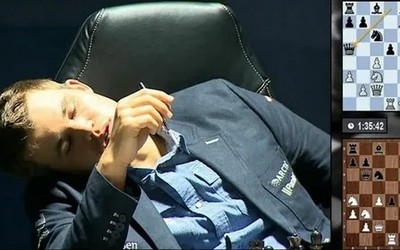
Transform Chess with Mindset Mastery
Transform Chess with Mindset MasterySo, let's put it in everyday terms. Imagine you've just lost nine games of chess in a row. Would you cry, give up on chess altogether, or keep complaining about your bad luck? Sure, those reactions might feel natural, but they're not what champions do.
Let me give you an example: back in 2016, Vincent Keymer, who was just 11 years old at the time, lost every single game in a tournament. But instead of getting upset, he calmly asked his last opponent if they could analyze their game together. Now, fast forward to today, Vincent is one of the top chess players in the world, ranked 14th globally, and even led Germany to a silver medal in the European Team Championships. Nobody cares about his rough patch in 2016 anymore.
Why? It's largely because of his attitude. Even as a kid, Vincent understood what really matters: learning and improving as much as possible.
See, there are three common mindsets when it comes to getting better at chess:
- Super-Short-Term Focus: This is all about immediate results. People in this mindset are always looking for quick fixes and easy wins, but they end up stressed out during games and often fall for gimmicky strategies.
- Mid-Term Focus: Here, players understand that training is important, but they still get frustrated easily, especially when they hit a plateau. They might obsess over memorizing opening lines or constantly change their approach after a bad tournament.
- Long-Term Focus: This is where the magic happens. Players with this mindset are in it for the long haul. They know that improvement takes time, so they focus on learning the fundamentals, understanding the game deeply, and solving tough problems. They still don't like losing, but they bounce back quickly and stay committed to their long-term goals.
Now, shifting your mindset isn't easy, but it's definitely possible. Here are some steps you can take:
- Understand that obsessing over short-term results only holds you back in the long run.
- Stop dwelling on your recent losses when talking to others.
- Try acting like Vincent would in tough situations, even if it feels awkward at first. Eventually, it'll become second nature.
- And most importantly, be patient and kind to yourself. Mistakes and setbacks are inevitable, but as long as you keep learning and moving forward, you're on the right track.
More blog posts by Skypelesson99

Thoughts during a chess match
Thoughts during a chess match
Selecting the Best Chess Tournament Category
Selecting the Best Chess Tournament Category
Real-Life Chess Success Stories
Real-Life Chess Success Stories